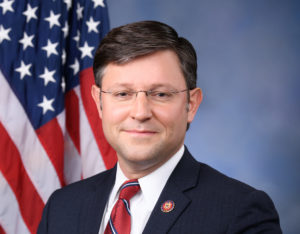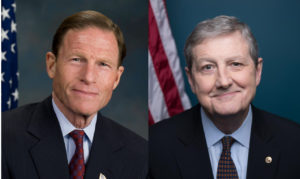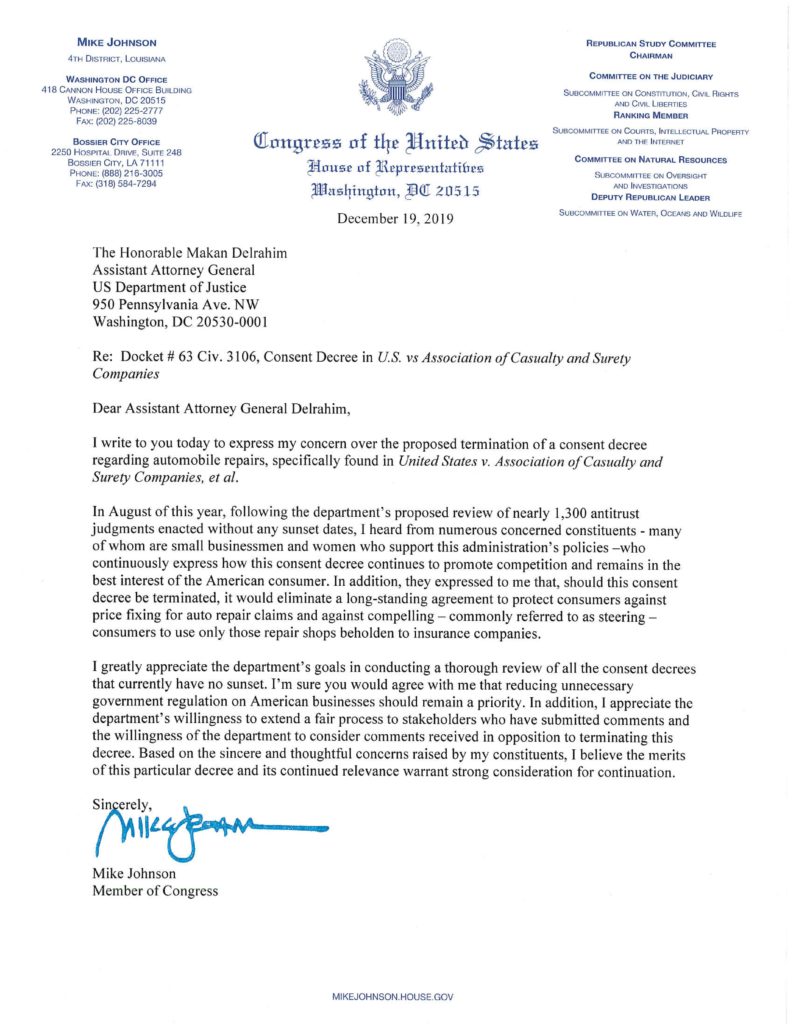
GOP Study Committee chair Johnson: Consent Decree deserves ‘strong consideration’
By onBusiness Practices | Insurance | Legal
U.S. Rep. Mike Johnson, the chairman of the Republican Study Committee, on Thursday told the Department of Justice he was concerned about the proposed termination of the 1963 Consent Decree.
Johnson’s leadership of the conservative caucus and seat on the House Judiciary Committee makes him an important voice for collision repairers seeking to preserve the antitrust decree on auto insurers.
The House Judiciary Committee provides congressional oversight over the Justice Department. The 46-year-old RSC is the “largest caucus of conservatives in the Congress,” “the voice and ‘intellectual arsenal’ of conservatism in the U.S. House of Representatives” and “a leading influence in shaping the legislative agenda,” according to Johnson’s website. At one point, it was chaired by Republican Vice President Mike Pence.
Johnson is also the third lawmaker to request the DOJ drop or reconsider its plan to terminate the open-ended decree.
His letter to Assistant Attorney General Makan Delrahim is dated a month to the day U.S. Sens. Richard Blumenthal, D-Conn., and John Kennedy, R-La., asked the Department of Justice to retain the judgment.
The DOJ in August proposed terminating the 1963 Southern District of New York settlement in U.S. v. Association of Casualty and Surety Companies, et al as part of a 2018 initiative to eliminate some of the nearly 1,300 “legacy” antitrust judgments enacted without sunset dates. Starting in 1979, the government’s policy has been to include an automatic end date — usually 10 years — regarding antitrust judgments.
Johnson on Thursday was sympathetic to the idea of cutting “unnecessary government regulation on American businesses,” but he felt the consent decree deserved “strong consideration for continuation.”
“I greatly appreciate the department’s goals in conducting a thorough review of all the consent decrees that currently have no sunset,” Johnson wrote. “l’m sure you would agree with me that reducing unnecessary government regulation on American businesses should remain a priority. In addition, I appreciate the department’s willingness to extend a fair process to stakeholders who have submitted comments and the willingness of the department to consider comments received in opposition to terminating this decree. Based on the sincere and thoughtful concerns raised by my constituents, I believe the merits of this particular decree and its continued relevance warrant strong consideration for continuation.”
Johnson told Delrahim that multiple constituents — including those who otherwise supported the Trump administration — had approached him about the matter.
“In August of this year, following the department’s proposed review of nearly 1,300 antitrust judgments enacted without any sunset dates, I heard from numerous concerned constituents – many of whom are small businessmen and women who support this administration’s policies –who continuously express how this consent decree continues to promote competition and remains in the best interest of the American consumer. In addition, they expressed to me that, should this consent decree be terminated, it would eliminate a long-standing agreement to protect consumers against price fixing for auto repair claims and against compelling – commonly referred to as steering – consumers to use only those repair shops beholden to insurance companies.”
According to an I-CAN copy of the 1963 complaint settled by the decree, insurers were alleged to have since about 1947 “engaged in a combination and conspiracy in unreasonable restraint of the aforesaid trade and commerce in the adjustment and settlement of automobile property insurance claims, the automobile material damage appraisal business and the automobile damage repair business, in violation of Sections 1 and 3 of the Sherman Act. …
“The aforesaid combination and conspiracy has consisted of a continuing agreement and concert of action among the defendants and co-conspirators to eliminate competition among member companies in the adjustment and settlement of automobile property insurance claims, among appraisers and among repair shops, in order to control and depress automobile material damage repair costs through boycott, coercion and intimidation of repair shops.”
Under the terms of the 1963 settlement, no wrongdoing was acknowledged by the signatory insurance trade groups nor alleged by the DOJ. Signers included the Association of Casualty and Surety Companies, American Mutual Insurance Alliance and National Association of Mutual Casualty Companies. The Association of Casualty and Surety Companies later was merged into the American Insurance Association, which merged with the Property Casualty Insurers Association of America effective Jan. 1 to create today’s American Property Casualty Insurance Association.
The decree bound the three trade groups and their “officers, directors, agents, servants, employees, committees, successors and assigns, and upon all other persons in active concert or participation with any defendant who shall have received actual notice of this Final Judgment by personal service or otherwise.”
Be heard: House Judiciary members can be found here. Senate Judiciary members can be found here.
Images:
U.S. Rep. Mike Johnson, R-La. (Provided by Johnson)
U.S. Sens. Richard Blumenthal, D-Conn., and John Kennedy, R-La. (Provided by Blumenthal and Kennedy)
U.S. Rep. Mike Johnson, the chairman of the Republican Study Committee, on Dec. 19, 2019, told the Department of Justice he was concerned about the proposed termination of the 1963 Consent Decree. (Provided by Johnson)


